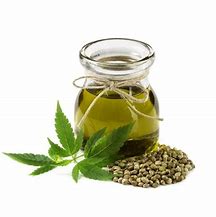What are Carrier Oils




-
What Are Carrier Oils?
- Carrier oil, also known as base oil or vegetable oil, is used to dilute essential oils and absolutes before they are applied to the skin in massage and aromatherapy. They are so named because they carry the essential oil onto the skin. Carrier oils do not contain a concentrated aroma, unlike essential oils, though some, such as olive, have a mild distinctive smell. Neither do they evaporate like essential oils, which are more volatile. The carrier oils used should be as natural and unadulterated as possible. Many people feel organic oils are of higher quality. Cold-pressing and maceration are the two main methods of producing carrier oils.
- There is a range of different carrier oils, each with a various therapeutic properties. Choosing an oil will depend on the area being massaged, the presenting conditions and the clients sensitivity and requirements. For massage, viscosity is a major consideration; for example, grapeseed oil is typically very thin, while olive oil is much thicker. Sunflower, sweet almond and grapeseed oils have viscosities midway between these extremes. Carrier oils can be easily blended to combine their properties of viscosity, acceptability, lubrication, absorption, aroma and so forth.
- Infused oils are a combination of a carrier oil and plant material and they can be either commercially or domestically prepared. A base oil, often sunflower, is placed in an airtight container with the appropriate plant material for a time. Calendula and carrot oils are produced in this way.
- High quality oils sold for culinary use are often eminently suitable for massage use, and are economical; those obtained by cold pressing are preferred. All carrier oils should be kept cool, and away from strong light, to retard rancidification. Rancid oils should be avoided. Refrigerating oils helps preserve their freshness but some oils should not be refrigerated (e.g. avocado). Very cold oils may appear cloudy, but regain their clear state on returning to room temperature.
- Sources passionately disagree on the suitability of mineral oil as a carrier oil. In the United States, food grade mineral oil is highly refined and purified to meet the stringent requirements of the FDA. Mineral Oil marked as "USP" also meets the standards of the US Pharmacopeia.
Articles-Most Read
- Home
- Contact Us
- Coconut Oil-2
- Absorption Ratings for Carrier Oils
- Cold Pressing Method
- What are Essential Fatty Acids
- Cherry Kernel Oil
- Fixed Oils and Skin Penetration
- Hempseed Oil
- Almond Oil
- Cocoa butter
- Camelina Oil
- Antibacterial Effects Of Carrier Oil
- Coconut Oil
- Lime Blossom Oil (macerated)
- Carrot Oil, Wild Carrot Oil (macerated)
- Apricot Kernel Oil
- Kukui Nut Oil
- Pumkin Seed Oil - Cucurbita maxima, C. pepo
- Jojoba Wax
- Passion Flower OIl (Macerated)
- Hydrocotyle Oil (macerated)
- Palm Kernel Oil
- Rapeseed Oil - Carrier Oil
- Nutrients
Who's On Line
We have 535 guests and no members online
Articles-Latest
- How to Make Homemade Olive Oil: A Step-by-Step Guide
- 20 Evidence-Based Aloe Vera Oil Benefits For Skin, Hair & Health
- Peanut oil - Cold pressed - Are There Health Benefits? How To Make
- What Are the Health Benefits of Black Seed Oil?
- Comfrey oil Infused
- Chamomile Flowers Infused Oil
- Calendula Flowers Infused Oil
- Arnica Flowers Infused Oil
- How To Make Herb-Infused Oils
- DIY avocado oil for healthy skin
- How To Make Coconut Oil
- 8 Benefits of Mustard Oil, Plus How to Use It
- SHOREA STENOPTERA SEED BUTTER
- Shea Butter- 7 Amazing Benefits Of Shea Butter
- Monoi Oil For Hair & Skin
- Mango Seed Oil
- Cohune Oil Is The Next Big Thing
- Brazil Nut OIl
- 7 Impressive Benefits Of Allspice
- Camelina Oil Benefits, Uses, and Side Effects



